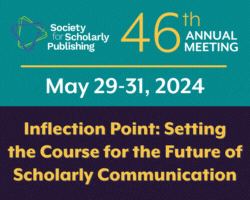Seminar 2: Machines as the New Readers: Theory and Practice of Data Interchange for Implementing Open Funder Registry and Other Identifiers in Publisher Workflows
The Internet was invented for person-to-person communication, and the World Wide Web for people to view scholarly articles. But as the Web has grown, computer-to-computer interaction across large sets of data has become a more important use of the Internet and Web. In the first half of this seminar, the RFC Editor, publisher for the Internet Engineering Task Force (IETF), will explore how this transition occurred, and how it has evolved through the application of web standards. The first half will end with an exploration of how new Web standards can be applied to solve access problems and provide a true single sign on service for scholars. In the second half, a panel will examine how Crossref’s Open Funder Registry is a specific application computer-to-computer interaction to provide standardized reporting of funding information for published scholarly research. This panel will look at the Open Funder Registry initiative from a variety of perspectives including a high-level overview of why persistent funder identifiers are important to funders, researchers, and publishers; how they interrelate with other persistent IDs (e.g., ORCID,) and include Open Funder Registry use case examples. A Crossref panelist will provide more detail about how Open Funder Registry works: where does the data come from and go to, and what are the best practices for depositing related metadata. Finally, two publishers will discuss the different work flow approaches they have taken and the challenges they’ve faced to make Funding data work, including collecting and correcting funding information from authors, working with vendors, implementing mandates, lessons learned, and next steps to refine the process.


